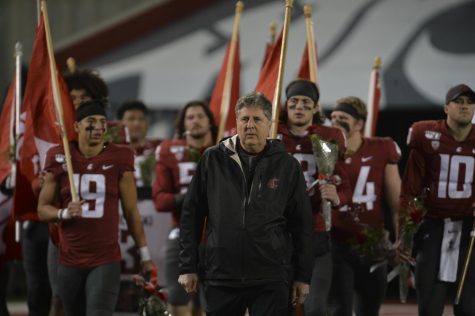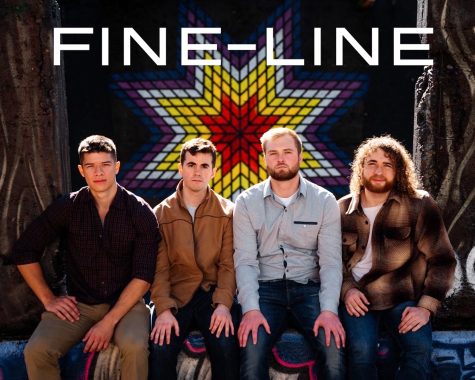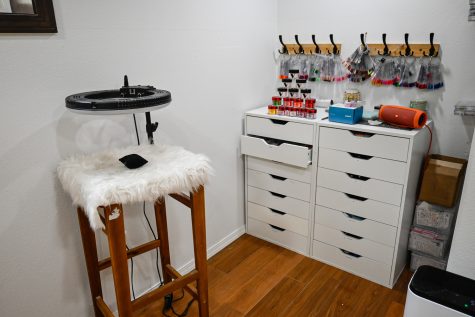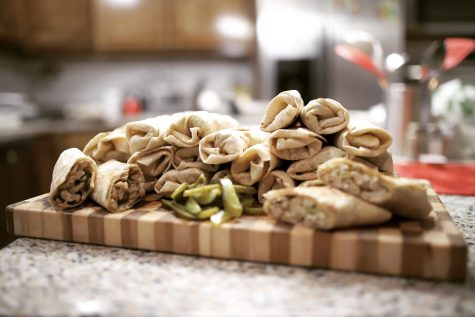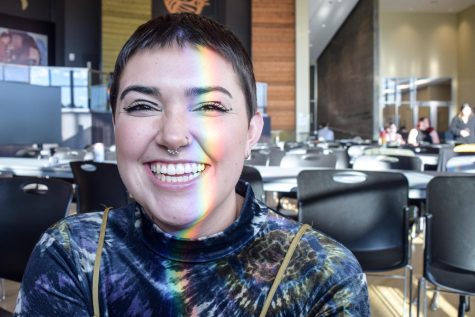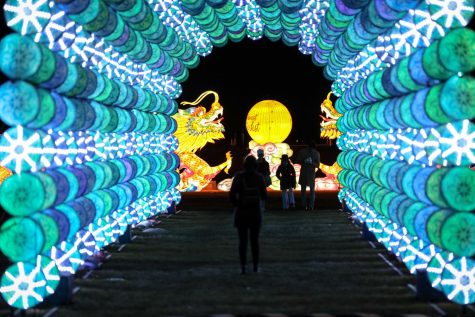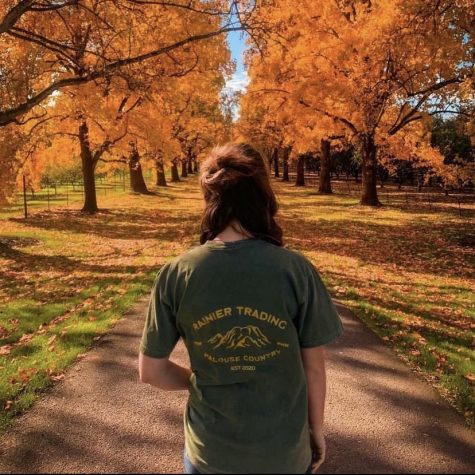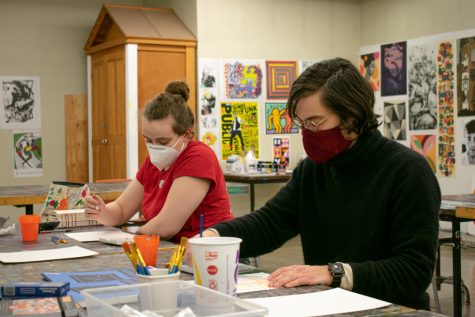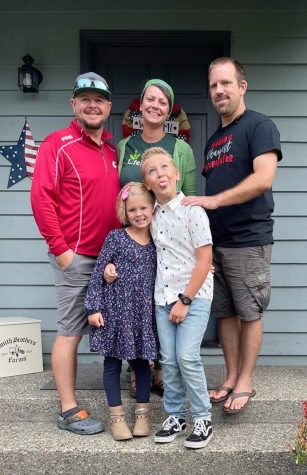LandEscapes: A year-long literary process
November 10, 2014
It’s that time of year again.
Since 1999, the LandEscapes Literary and Arts Journal has reached out to aspiring student-artists and student-writers to submit their creative work for the chance of publication.
Peter Chilson, instructor in the English department and journal adviser, said he’s been with the magazine since its genesis.
“I guide students through the publication process, advising them on editorial matters such as fact-checking, organizing an editorial operation, issues of libel, and marketing the magazine,” Chilson said.
Over the years, the magazine has taken many shapes and sizes; yet, the magazine stays consistent with the genres in which students are able to submit.
Blair Rezny, senior political science major and one of the three poetry editors, said the genres are very concrete. Editors who select the submissions, but the contributors are the ones who make the magazine possible, Rezny said.
“We let the students drive the content,” Rezny said. “We’re split into poetry, fiction, non-fiction, art, photography, and over the past couple of years have been trying to integrate music. We have nothing pre-determined set up.”
LandEscapes has the creation plan divided between the semesters.
During the fall semester, the editors stay busy receiving submissions, and students have until Christmas Eve to submit work.
“First semester is a lot of training during weekly meetings,” said Ana Schmidt, senior literature major and editor-in-chief for the journal.
Editors analyze previous submissions and develop an eye for what is appealing to them, which later applies to the upcoming submissions they receive during Christmas break.
“First semester is all about getting the name out for submissions,” Schmidt said. “Second semester is when things get busy for my editors.”
Rezny said the editors start going over the submissions during winter break, and the editing process takes up the bulk of spring semester, when there is more interaction between editors and contributors.
“We meet with the writers, a lot of times they meet with a plan about what needs work, and that’s the majority of what we do,” Schmidt said.
During this time, Schmidt also interacts with the layout designer for the new journal. The design editor coordinates with the other editors to discuss the length of the pieces and space available for them.
When the pieces are finished, the design editor is in charge of making the printing process runs smoothly.
The grand finale comes together for release party that takes place during dead week.
Kelsey Johnson, junior digital technology and culture major, said with her experience publishing last year’s issue with a brand new look, she is starting to look for ideas of what she wants it to look like this time around.
“I want to set a standard from the last book to create a legacy,” she said.
Prior to Johnson’s time as layout designer, the cover consisted mostly of tying in the title with nature, which often gave the impression to contributors that nature was the theme for submissions, Rezny said.
“Last year when we were talking about what we wanted the cover to look like, a lot of people said they wanted it to be more geometric and organic,” Johnson said. “I want to keep doing that to give the book a style.”
This year also marks a renovation for the journal’s presence online.
The editors want to make the website more reader-friendly, where people can find all the past issues, Rezny said.
“This year we are redesigning our website … which is exciting because we will have a much greater capacity to publish student music, including visual and audio,” Chilson said.
Chilson also said that they intend to have the webpage completed in February, just in time for the journal’s publication during spring semester.
The opportunity for editing and publishing in LandEscapes help provide a stepping stone for careers outside of the university, Chilson said.
“Two former editors, for example, now work at Narrative Magazine in San Francisco,” he said. “Narrative is one of the nation’s leading literary magazine.”
All students are encouraged to contribute to the submission process, whether they are accepted or not.
“If you never send out your work you never know,” Schmidt said. “Nobody is a bad writer. They just need practice. It’s so important to get rejected. It’s a liberating experience.”










